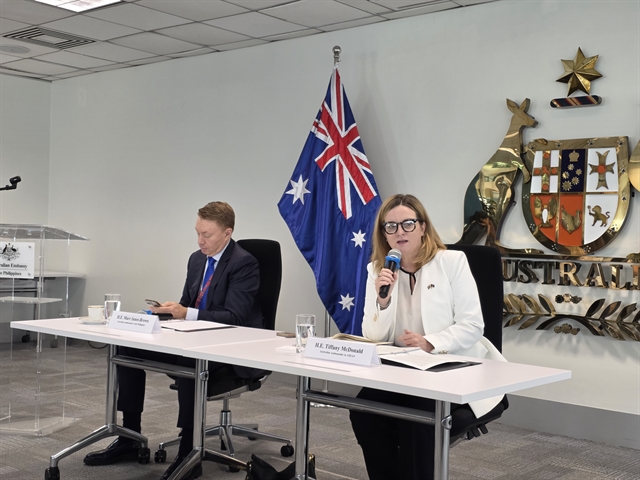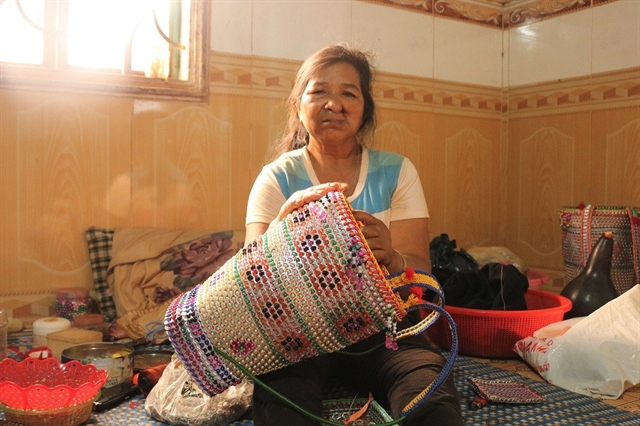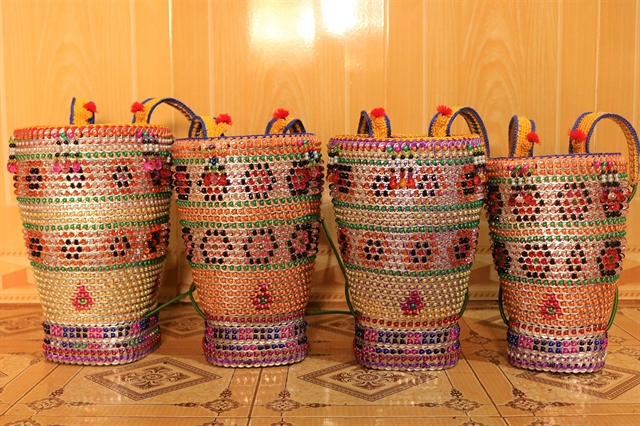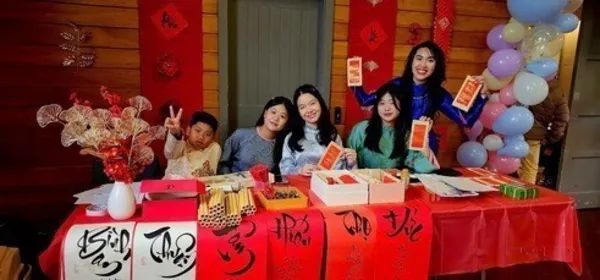 Sunday/Weekend
Sunday/Weekend

 |
Rơ Mah Vo with her basket. — VNS Photo Hồ Hải Nam
By Hồ Hải Nam
The image of ethnic minorities in the Central Highlands carrying baskets on their backs is familiar, even idyllic, in many people's eyes. The baskets, usually made of bamboo and rattan, are an indispensable item in the life of the people here, passed down from generation to generation.
However, using waste beer and soft drinks cans, Rơ Mah Vo, a disabled woman of the Ja Rai ethnic group, has made unique baskets with high value that are good for the environment.
In Vo's small house in Ghè Village, Đức Cơ District, Gia Lai Province, there are dozens of handmade products exquisitely shaped from waste bottles.
After pouring out water for some guests, the 60-year-old woman quickly continues finishing a basket she is working on. Smiling, Vo discusses her life.
She was born disabled. Her legs were crippled, so she could not move smoothly, and everything had to be done with her small hands.
Unwillingly to be a burden on her family, she does everything from handloom weaving and sewing clothes to making wickerwork to earn money to take care of her parents.
"In the past, I wove artisanal fabrics, but they did not sell well," she said.
"Realising that handloom weaving was no longer economical, I switched to weaving baskets of the Ja Rai ethnic designs."
 |
Tourists and locals love the baskets Rơ Mah Vo makes from waste bottles. — VNS Photo Hồ Hải Nam
Sharing the origin of her idea, Vo said that during a family party, she saw empty beer and soft drinks cans scattered on the floor. Suddenly, the idea of using the waste as material to make bags and baskets popped into her head.
Vo began collecting the wastes to make her first product, a handbag. After three days of working on it, the item won much praise. Many people came to the village to order the product, which was perfect in shape and colour, and utterly unique.
With an increasing number of orders, she asked her grandson to collect the lids of waste bottles for her and continued to decorate the newly designed baskets.
After days of meticulous shaping and decorating, she created her first basket, which exceeded all expectations.
The baskets are not only decorative but highly practical when worn on the back. They also enhance the beauty of the Ja Rai women.
"The baskets were completed, and many people in and outside the village come to see and order my products. I am thrilled," she said.
"Currently, the price of each bag and basket is VNĐ300,000 to VNĐ800,000, respectively. Thanks to that, I have more income to support my family."
According to Vo, completing a product requires strong and skilful hands to knit the materials together.
 |
With skilful hands, Rơ Mah Vo turns waste items into beautiful products. — VNS Photo Hồ Hải Nam
In addition, it is necessary to have a good sense of colour to decorate according to ethnic fabric patterns and flowery and geometric designs. Usually, decorating a basket takes about four or five days. On average, Vo can make four items a month, but when customers order a lot, she works harder.
Customer Trần Thị Liên, 39, of Chư Ty Town in Đức Cơ District, said: "I really like Vo's handmade products. I bought several bags and baskets as gifts for my friends in Bình Dương Province, and they gave beautiful compliments.
"People are surprised to learn a disabled woman made such baskets, and are appreciative. Next time I have the opportunity, I will continue to buy and promote them to friends in other places to help Vo make more money." VNS




